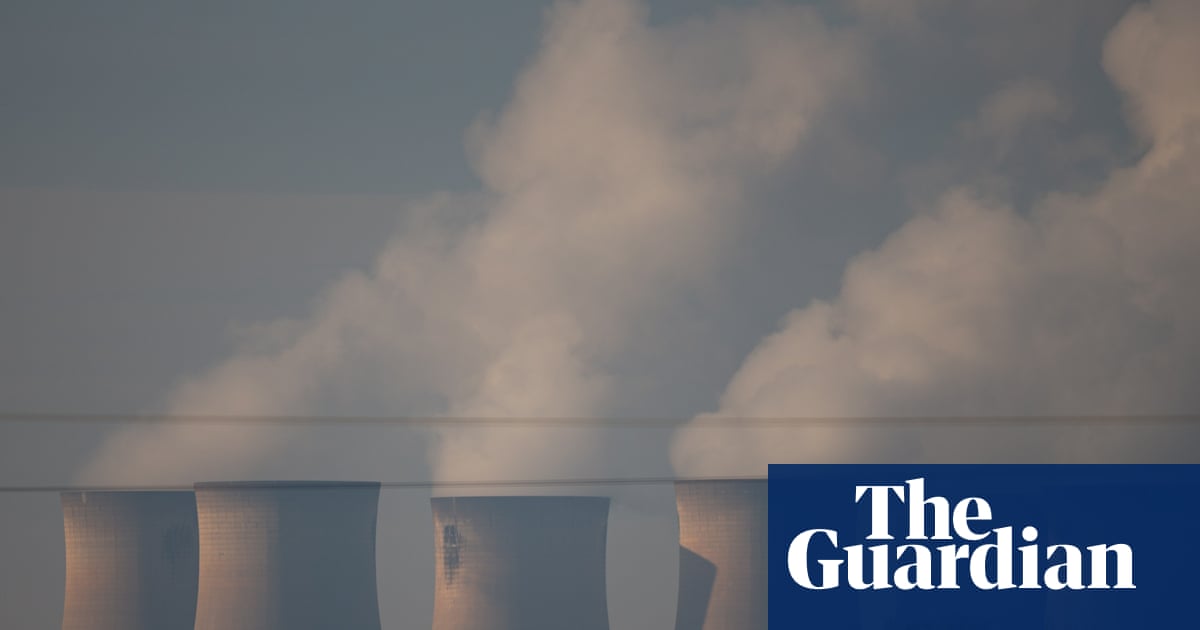Britain’s biggest power plant will continue to earn more than £1m a day from burning wood pellets under a new government subsidy contract designed to halve its financial support, according to analysts.
The Drax power plant in North Yorkshire is in line to earn £458.6m a year between 2027 and 2031 after the government agreed to extend its subsidies beyond 2026, according to analysts at Ember, a climate thinktank.
The earnings are well below the £869m in subsidies handed to the Drax power plant last year for generating about 5% of the UK’s electricity from burning biomass after the government promised to curb the use of biomass in Britain’s power system.
Under the new contract, Drax will be paid to run just over a quarter of the time, down sharply from almost two-thirds of time currently. But the price it will earn for each unit of electricity generated will rise.
Officials have offered the power plant a guaranteed price of £157.50 for every megawatt-hour of electricity it generates between 2027 and 2031, in today’s prices, which could be higher with inflation.
This would be higher than the current price of £142.24/MWh earned by the power plant, and double the current wholesale market price of electricity bought in advance, which is just over £78/MWh.
When the deal was agreed in February, the energy minister, Michael Shanks, said the company’s subsidies had been cut because it “simply did not deliver a good enough deal for bill payers and enabled Drax to make unacceptably large profits”.
Under the terms of the new contract, the company will have to switch to using 100% woody biomass from sustainable sources, up from the current level of 70%. The government threatened “substantial penalties” if Drax does not comply.
Will Gardiner, the chief executive of Drax, said: “We are pleased to have agreed this new contract with the UK government, which will support UK energy security into the 2030s and deliver a net saving for consumers compared with alternative sources of dispatchable generation.
“The agreement will support the rollout of intermittent renewable generation across the UK and provides options to ensure Drax Power Station continues to play a long-term role in the regional economy and UK energy system,” Gardiner said.
The company claims that independent analysis, undertaken by consultants at Baringa, found that the deal will deliver savings of up to £3.1bn over the four-year term by avoiding the need to produce extra power generation capacity, and reducing the UK reliance on gas and interconnectors.
after newsletter promotion
Josie Murdoch, an analyst at Ember, said: “Although this new deal means Drax generation and subsidies will fall, the deal will still see substantial subsidies handed out to Drax every day, all while Drax remains the largest emitting power station in the UK.”
Electricity generated from biomass is defined as carbon neutral in the UK’s carbon budgets but Ember has claimed that the power plant’s actual emissions are more than the next six most polluting power plants in the UK combined. The findings were dismissed by Drax as “flawed” and the company accused its authors of ignoring its “widely accepted and internationally recognised approach to carbon accounting”.
Earlier this year, the FCA, the City watchdog, began an investigation into Drax over “historical statements” made about the sourcing of wood pellets to examine whether the company had complied with disclosure and transparency rules.
